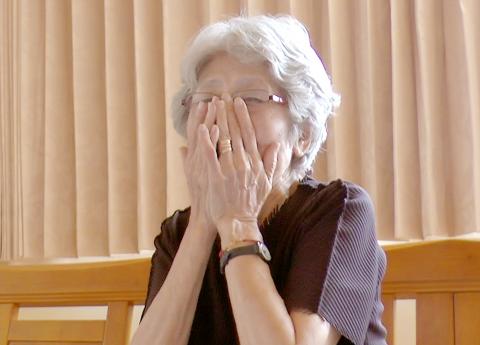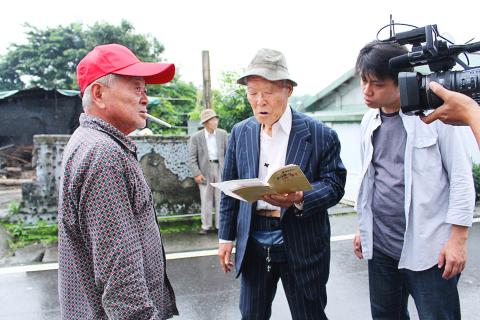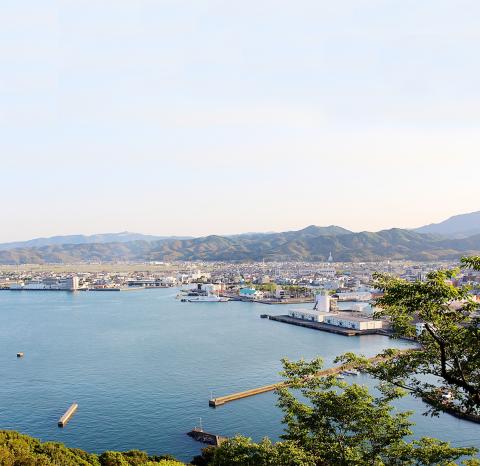One episode in Taiwan’s forgotten, even deliberately buried, past has been recovered in the documentary Wansei Back Home (灣生回家). It starts in Jian Township (吉安), Hualien County, where few can recall life during the Japanese colonial era, when the place was known as Yoshino Village. It was one of the first Japanese settlements in Taiwan, built to encourage Japanese families to emigrate to the new colony.
Japanese settlers came with everything they had and a one-way ticket. They farmed, went to school and gradually made Taiwan their home. Then in August 1945 Japan surrendered to the Allies, ending World War II. More than 470,000 Japanese were repatriated, with over half that number accounting for wansei, or Japanese citizens born in Taiwan during the colonial period from 1895 to 1945.
These wansei, many of whom considered Taiwan their home, were met with discrimination and hostility upon returning home to post-war Japan.

Photo courtesy of Activator Marketing Company
Wansei Back Home began as a personal project when Mika Tanaka first visited Jian in 2003, when she was determined to learn more about her late grandmother, who had kept her wansei identity secret.
Since then, Tanaka has found over 200 survivors, most in their 70s and 80s, across Japan and Taiwan. She teamed up with a Taiwanese film crew, including director Huang Ming-cheng (黃銘正) and composer Baby C (鍾興民), and produced an intimate, heartfelt portrait of the wansei through interviews, old photographs, archival footage and animated sequences.
As the wansei visit their childhood homes, it immediately becomes apparent that they’ve maintained a deep connection to Taiwan.

Photo courtesy of Activator Marketing Company
Eighty-eight year-old Masaru Tominaga, for example, can still speak Hoklo and sing old Taiwanese ballads such as Flowers in the Rainy Night (雨夜花). His home in Tokushima is crammed with books about Taiwan. During his trip to Hualien, the octogenarian bursts into tears when he learns that all his old friends have passed away.
Kosei Matsumoto, who also visited Hualien, says that growing up the child of farmers in Taiwan made it extremely difficult to assimilate into Japanese society. Nobuko Takenaka says repatriation was particularly daunting for her family, who had settled in Suao for three generations before the end of World War II.
Eighty-five year-old Taeko Iekura agrees. However, she adds that she has come to terms with the fact that her birth in Taiwan has forever branded her a foreigner in Japan.

Photo courtesy of Activator Marketing Company
Although many wansei recall with nostalgia their life in Taiwan and the hardship and poverty they faced after they arrived in Japan, the documentary largely avoids direct criticism.
Iekura says that even though her father worked as a government official at the Office of the Governor-General of Taiwan, her family had no place to live after returning to Japan and were forced to seek shelter at different temples.
With its rarely discussed and obscure subject matter, Wansei Back Home calls out for deeper treatment than is offered here. Nevertheless, the film makes an adequate attempt at rediscovering personal histories and serves as a starting point for those interested in examining more about the past before those who can narrate it first hand disappear.

Words of the Year are not just interesting, they are telling. They are language and attitude barometers that measure what a country sees as important. The trending vocabulary around AI last year reveals a stark divergence in what each society notices and responds to the technological shift. For the Anglosphere it’s fatigue. For China it’s ambition. For Taiwan, it’s pragmatic vigilance. In Taiwan’s annual “representative character” vote, “recall” (罷) took the top spot with over 15,000 votes, followed closely by “scam” (詐). While “recall” speaks to the island’s partisan deadlock — a year defined by legislative recall campaigns and a public exhausted

Hsu Pu-liao (許不了) never lived to see the premiere of his most successful film, The Clown and the Swan (小丑與天鵝, 1985). The movie, which starred Hsu, the “Taiwanese Charlie Chaplin,” outgrossed Jackie Chan’s Heart of Dragon (龍的心), earning NT$9.2 million at the local box office. Forty years after its premiere, the film has become the Taiwan Film and Audiovisual Institute’s (TFAI) 100th restoration. “It is the only one of Hsu’s films whose original negative survived,” says director Kevin Chu (朱延平), one of Taiwan’s most commercially successful

In the 2010s, the Communist Party of China (CCP) began cracking down on Christian churches. Media reports said at the time that various versions of Protestant Christianity were likely the fastest growing religions in the People’s Republic of China (PRC). The crackdown was part of a campaign that in turn was part of a larger movement to bring religion under party control. For the Protestant churches, “the government’s aim has been to force all churches into the state-controlled organization,” according to a 2023 article in Christianity Today. That piece was centered on Wang Yi (王怡), the fiery, charismatic pastor of the

The primaries for this year’s nine-in-one local elections in November began early in this election cycle, starting last autumn. The local press has been full of tales of intrigue, betrayal, infighting and drama going back to the summer of 2024. This is not widely covered in the English-language press, and the nine-in-one elections are not well understood. The nine-in-one elections refer to the nine levels of local governments that go to the ballot, from the neighborhood and village borough chief level on up to the city mayor and county commissioner level. The main focus is on the 22 special municipality